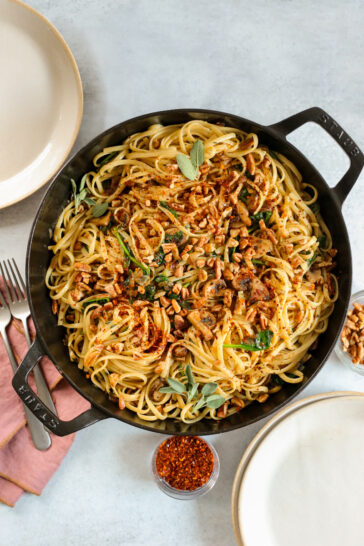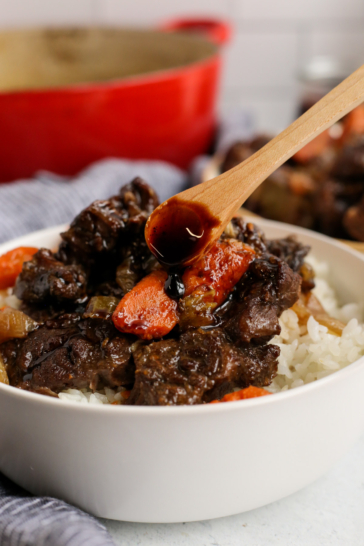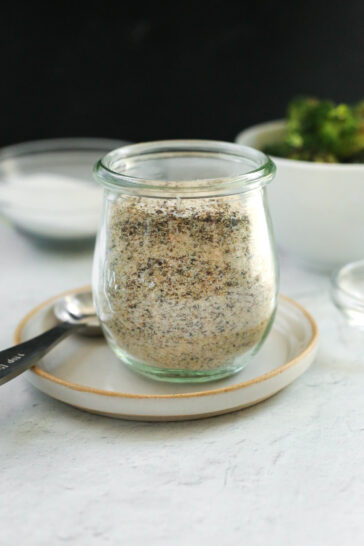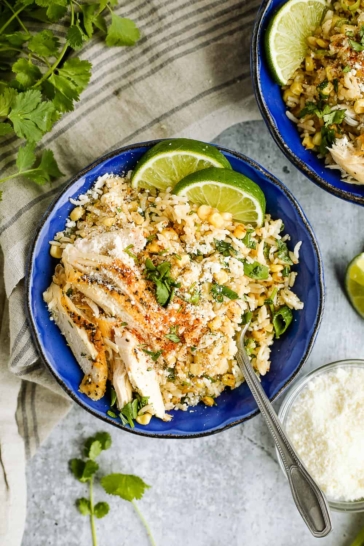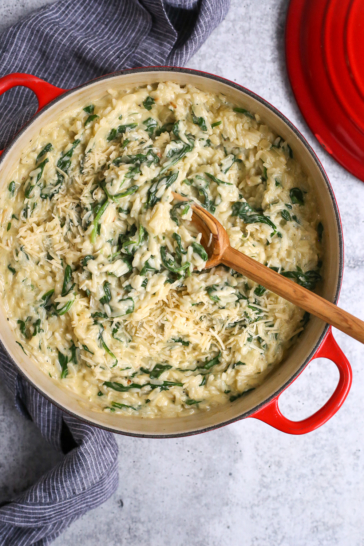QUESTION: Is food addiction real? I hear such conflicting things on the topic with some sources saying sugar is as addicting as cocaine and others saying it’s all in my head. Is it possible to be addicted to food? How do I know if I’m addicted to food?
ANSWER: From a physiological standpoint: No, food addiction is not really a thing.
From an emotional standpoint: Yes, it is possible to feel as if you are addicted to food because of the overwhelming lack of control you sense around it.
But that doesn’t mean you’re actually addicted to food in the same way you might be addicted to something like drugs or alcohol. It’s just really hard to tell what normal eating is within the context of diet culture.
Breaking Down the Nuance of Food “Addiction”
First, it’s important to acknowledge the fact that food and drugs are very different for one very important reason: we need food to survive. Drugs, on the other hand, are not inherently necessary for survival. But we know they may become biologically addictive over time (repeated use of certain drugs can create different neural pathways in the brain that actually make your body think that the drugs are just as essential to survival as food itself).
It’s a normal and natural phenomenon to want to eat. It’s even normal and natural to feel a strong compulsion or desire to eat.
Think about it from an evolutionary standpoint. What advantage could come from a lack of desire to go out and find food? None, really. If there were no drive to seek out food, we wouldn’t have survived. This is true in the animal kingdom, yet no one blames the animals for a lack of willpower or claims they’re addicted to food.
Those who believe strongly in the food addiction model often counter this survival point by saying many of the foods we eat today are processed foods with added sugars and “chemicals” our bodies did not evolve with. Some go as far as saying these highly processed foods should be regarded just as a drug would be. While it’s true that highly processed foods are relatively new, the evidence is still unclear about whether that’s reason enough to significantly increase our overall energy intake. This also contributes to the myth that our bodies can’t be “trusted” around such processed foods.
With a few exceptions for genetic disease states or GI conditions, yes. Your body can handle processed foods.
There is another big problem with this hypothesis. We know food preferences and food drives are highly impacted by deprivation and restriction. To date, not a single food addiction study controls for dieting behavior or restriction. This is important because much of the so-called evidence for food addiction hinges on the ways in which people react to highly palatable foods.
What’s a highly palatable food? Well, it depends on your personal food preferences. Read more about that HERE and learn how to distinguish food preferences from food rules.
What does all this mean?
It means there’s nothing wrong with feeling “addicted” to foods that taste really good. It’s likely these foods will have even more appeal if you’re operating in a dieting mindset where you restrict or avoid these pleasurable eating experiences. And while we might like to think dieting is simply about having enough willpower to say, “No” to these foods, our inability to stay away forever is not actually a sign of physical addiction to food.
More on this in the next section.
Investigating the Evidence Behind Food Addiction
According to the food addiction research that asks, “Is food addiction real?” evidence that food addiction is a demonstrable, biological condition can be broken down into the following conclusions:
- Those who are addicted to food experience an intense chemical response to ingesting highly palatable foods. This chemical response is often related to the pleasure centers of the brain and mimics the pleasure response seen in the brain under the influence of drugs.
- Those who are addicted to food feel out of control around foods and are unable to prevent themselves from eating highly palatable foods, lending to the idea that the behavior is out of the individual’s control and therefore, food addiction must be to blame.
The problem with these statements is both reactions are mediated by restriction and deprivation. We live in diet culture, which means the same people hyper-concerned about food addiction are the same people constantly cycling through the diet-binge pattern. If we are constantly depriving our bodies, physically or mentally, we are going to respond strongly to food-related stimuli.
Why? Because we need food to survive! In many ways, this suggests our response to food is not addictive at all.
Instead, it’s adaptive. If we’re conditioned to expect deprivation, then our bodies are going to be very creative in adjusting and adapting in ways that encourage taking in more food. The result? A high pleasure response to food, a biological mechanism put in place to help us survive, and one kicked into overdrive when we don’t get enough nourishment.
Similarly, feeling out of control around food and struggling to prevent yourself from eating is also an indication that your body is doing exactly what it was designed to do: seeking out the thing that fuels our body and keeps us alive.
Food is Survival, It’s Not Addicting
There are other issues with the food addiction model, including the fact that kissing babies and receiving hugs light up the very same pleasure centers as drugs and food.
The bottom line though is that we don’t have sufficient evidence to suggest food addiction is a true biological addiction. In fact, evidence suggests food behavior that feels compulsive is simply a survival response; it’s our bodies doing what they were designed to do.
If you’re struggling with feeling addicted to food, it might help to flip the script a little bit.
Could it be possible for you to feel appreciative that your body is watching out for you like this? That it’s functioning as intended and doing everything in its power to keep you safe and secure? It’s not easy, especially if you’ve come from a long history of berating and criticizing your body. But if you can recognize that this feeling of food addiction is actually a survival or coping mechanism, you may find it easier to practice self-care and gentle nutrition regardless of how your body looks.
Your Experience is Valid
If you’re currently struggling with your relationship with food, and you are experiencing food in a way that makes you feel out of control or addicted, I want you to know that I see you. I see your pain and I understand how difficult this experience is.
But I also want you to know that you are not broken; you do not lack willpower.
Your body is simply responding to its environment, one rife with food restriction and deprivation. The answer isn’t berating yourself, or in “treating” your “addiction” through further deprivation. It’s in treating the restriction itself, nourishing your body, and honoring the fact that you need food to be a fully functioning human. Check out more on intuitive eating if this sounds like something you want to explore.
If you’re interested in seeing the research or learning more about the limitations of the current food addiction model, be sure to check out this excellent blog post from Marci Evans, an RD specializing in the intersection of gut health and eating disorders, orthorexia, and body image.

